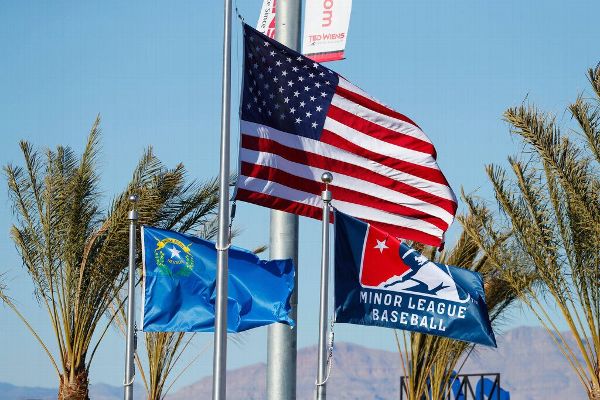MLB settles case vs. minor leaguers for $185M

Check out multiple players and grounds crew members attempt to catch a squirrel on the field during a minor league baseball game. (1:45)
Major League Baseball will pay $185 million to settle the federal class-action lawsuit filed by minor league players who sought pay for minimum-wage and overtime violations by teams, pending a judge approving the settlement, according to a document filed in California court Friday.
The suit, filed in February 2014 by former Miami Marlins minor leaguer Aaron Senne and two other retired minor league players, was settled May 10, three weeks before it was set to go to trial. Thousands of other players will be eligible to receive part of the $120,197,300 due to players, with the rest going to attorney’s fees and other costs.
As part of the settlement, MLB will issue a memo that allows teams to pay minor league players during spring training, and extended spring training and instructional leagues in Florida and Arizona. Teams previously had been blocked from doing so.
“This settlement is a monumental step for minor league players toward a fair and just compensation system,” Garrett Broshuis, the attorney who spearheaded the suit, said in a statement. “As a former minor league baseball player, I’ve seen first-hand the financial struggle players face while earning poverty-level wages — or no wages at all — in pursuit of their major league dream. For the better part of a decade, it has been my honor to help lead this fight and to shine a light on the unfair labor practices that have long plagued America’s pastime.”
The first significant volley in an ongoing effort by minor league players to improve their standards of living, the suit alleged MLB teams violated federal and state minimum-wage and overtime laws. The U.S. Supreme Court denied the league’s attempt to dismiss the class in October 2020, and the league avoided even greater potential damages through the settlement.
Some minor league players continue to receive salaries below the poverty line after Congress in March 2018 passed a bill that exempted them from federal minimum-wage and overtime laws. The majority of the more than 5,000 players in the minor leagues make between $4,800 and $14,700 annually. Minor league players have been paid only during their season.
The salaries represent an increase from past wages. MLB this season implemented a new policy that mandates teams to cover lodging for players at home after they previously were responsible for it. Minor league players continue to push for more improvements, and Senate Judiciary Committee leadership has inquired with Advocates for Minor Leaguers, a group pushing for changes, about how MLB’s antitrust exemption applies to minor league players.
“We are only in the second year of a major overhaul of the 100-year-old player development system and have made great strides to improve the quality of life for minor league players,” an MLB spokesperson said in a statement. “We are proud that minor league players already receive significant benefits, including free housing, quality health care, multiple meals per day, college tuition assistance for those who wish to continue their education and over $450 million in annual signing bonuses for first-year players. We are pleased we were able to come to a mutually agreeable resolution but are unable to comment on the details until the agreement is formally approved by the Court.”
Previously the judge in Senne v. MLB, Joseph C. Spero, awarded the class $1.88 million for the league’s lack of compliance with California wage laws. The suit divides the class into three groups: players who participated in spring training or extended spring training in Florida starting Feb. 7, 2009, Cal League players from Feb. 7, 2010 on and players from Arizona spring training and extended after Feb. 7, 2011.
Spero wrote in March that minor league players are year-round employees rather than the seasonal employees the league argued, saying: “These are not students who have enrolled in a vocational school with the understanding that they would perform services, without compensation, as part of the practical training necessary to complete the training and obtain a license.”